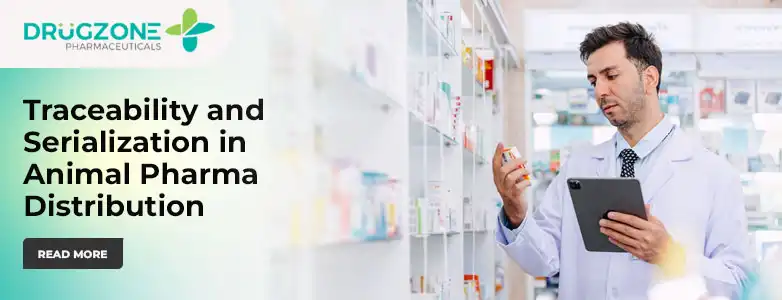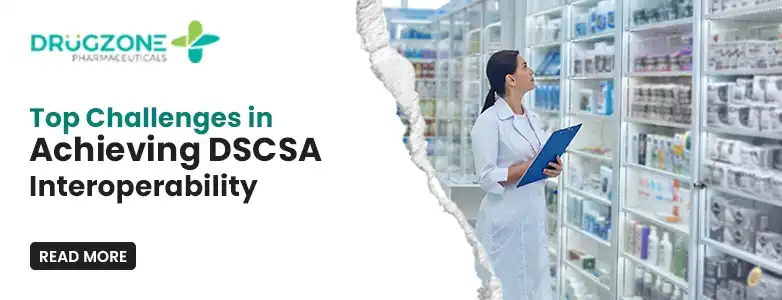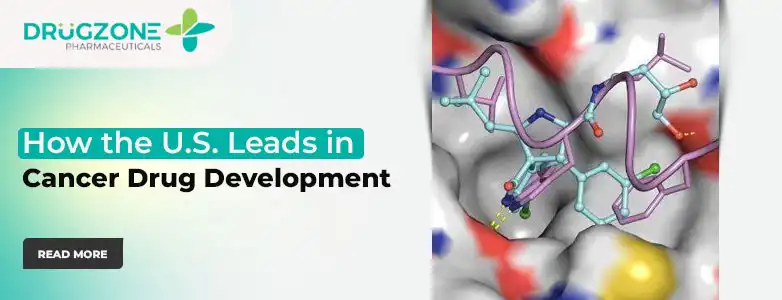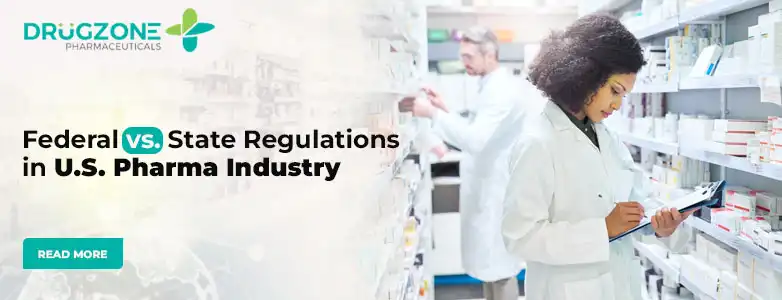
Posted On: April 02, 2025
Cold Chain Logistics Expansion: Meeting the Demands of Temperature-Sensitive Medications
What if you spent millions on life-saving medications, only to find they lost their effectiveness due to poor temperature control during transit?
This is a constant concern for wholesale pharmaceutical distributors, healthcare providers, and distributors.
Temperature-sensitive drugs, such as vaccines, insulin, and biologics, require strict handling to remain safe and effective. Even a slight temperature fluctuation can result in spoilage, financial losses, and, most importantly, risks to patient health.
As the reach of wholesale pharmaceutical distributors increases, so does the complexity of cold chain logistics. From regulatory compliance to technological advancements, the industry is evolving rapidly to ensure safe drug delivery. In
An Overview of Cold Chain Logistics
Cold chain logistics refers to the specialized storage and transportation of temperature-sensitive pharmaceuticals.
The process, essentially, ensures that medications maintain their required temperature range from the manufacturing site to the patient’s hands. It prevents product degradation and maintains drug efficacy.
The logistics involve refrigerated storage facilities, temperature-controlled transportation, and monitoring systems that track environmental conditions in real time.
With demand for temperature-sensitive drugs increasing, efficient cold chain management is now a non-negotiable part of pharmaceutical supply chains!
The Must-Knows About Cold Chain Logistics
Here are some of the most critical aspects of cold chain logistics that you need to know.
1. The Growing Demand for Temperature-Sensitive Medications
The pharmaceutical industry is shifting toward biologics and specialty drugs, many of which require strict temperature control.
Research indicates that the pharmaceutical cold chain logistics market is projected to grow from $17.2 billion in 2021 to $28.1 billion by 2028, at a CAGR of 7.5%. This growth is driven by the rise of personalized medicine, gene therapy, and global vaccine distribution.
More temperature-sensitive medications mean an increased need for reliable storage and transportation solutions.
2. The Impact of Temperature Excursions
Temperature excursions, when medications are exposed to temperatures outside their recommended range, can have severe consequences.
The World Health Organization (WHO) reports that up to 50% of vaccines are wasted globally each year due to improper temperature control. This leads to financial losses and delays in critical treatments.
Even small fluctuations can reduce the potency of medications, rendering them ineffective or unsafe for use. For example, insulin must be stored between 2°C and 8°C (36°F–46°F). Exposure to high temperatures can degrade its composition.
To prevent such issues, companies must invest in advanced monitoring solutions and rapid-response measures.
3. Technology is Transforming Cold Chain Management
Modern technology is playing a vital role in reducing risks in cold chain logistics. IoT sensors, GPS tracking, and real-time data loggers allow companies to monitor shipments 24/7.
If a temperature deviation occurs, alerts are sent instantly, enabling corrective action before the product is compromised. According to McKinsey, AI-powered predictive analytics can reduce temperature excursions by up to 30%.
The blockchain technology is also being used to enhance supply chain security. It provides tamper-proof tracking of shipments, ensuring transparency and compliance. These innovations are making cold chain logistics more reliable and efficient by reducing waste and improving patient safety.
4. Regulatory Compliance is Non-Negotiable
The pharmaceutical cold chain must adhere to strict regulatory requirements. Agencies like the FDA, WHO, and EMA have established guidelines for the storage, handling, and transportation of temperature-sensitive medications.
The Drug Supply Chain Security Act (DSCSA) in the U.S. mandates full traceability to prevent counterfeit drugs from entering the supply chain.
Failure to meet these regulations can result in hefty fines, legal consequences, and reputational damage. More importantly, it puts patient safety at risk. Compliance requires a combination of temperature-controlled infrastructure, proper documentation, and trained personnel to ensure adherence to global quality standards.
5. Packaging Plays a Vital Role
Investing in high-quality packaging reduces the risks of spoilage and ensures compliance with pharmaceutical regulations.
Advanced materials like phase-change materials (PCMs) and vacuum-insulated panels (VIPs) help stabilize temperatures during transit. Reports suggest that using specialized packaging can reduce temperature excursions by over 40%.
Packaging solutions must be validated for different climatic conditions. A shipment traveling through multiple regions may experience extreme temperature variations, so passive and active cooling technologies must be used.
6. The Importance of Trained Personnel
Besides the right technology, cold chain logistics also requires skilled professionals who understand temperature-sensitive handling.
Even the best monitoring systems can’t compensate for human error in packaging, transportation, and storage. It has been observed that companies that invest in staff training experience 25% fewer cold chain failures.
Training covers everything from emergency response protocols to regulatory compliance. Employees must be equipped to handle unexpected challenges, such as power outages, equipment malfunctions, or customs delays.
Well-trained personnel ensure that best practices are followed at every stage of the supply chain.
7. Wholesale Pharmaceutical Distributors Are Key Players
Wholesale pharmaceutical distributors play a notable role in ensuring medications reach healthcare providers safely and on time.
Companies like Drugzone Pharmaceuticals Inc. distribute thousands of SKUs across 40+ states while maintaining full compliance with DSCSA and NABP accreditation.
While sourcing directly from manufacturers and implementing stringent cold chain protocols, wholesale distributors help prevent counterfeit drugs from entering the market. Their ability to manage inventory, coordinate logistics, and navigate regulatory requirements makes them an indispensable part of the pharmaceutical supply chain.
How Drugzone Reliability in Cold Chain Pharmaceutical Distribution
The demand for temperature-sensitive medications is growing, and cold chain logistics must evolve to keep up.
Drugzone is deeply committed to delivering high-quality pharmaceutical products with the strictest temperature control standards. Our advanced logistics solutions, compliance with industry regulations, and dedication to efficiency make us a trusted partner in pharmaceutical distribution.
Frequently Asked Questions (FAQs)
Q. Why is cold chain logistics crucial for pharmaceuticals?
Cold chain logistics ensures that temperature-sensitive medications, such as vaccines and biologics, remain effective and safe by maintaining strict temperature control during storage and transportation.
Q. How do wholesale pharmaceutical distributors maintain cold chain integrity?
Distributors use specialized packaging, temperature-controlled transportation, and real-time monitoring technologies to prevent excursions and ensure compliance with regulatory standards.










